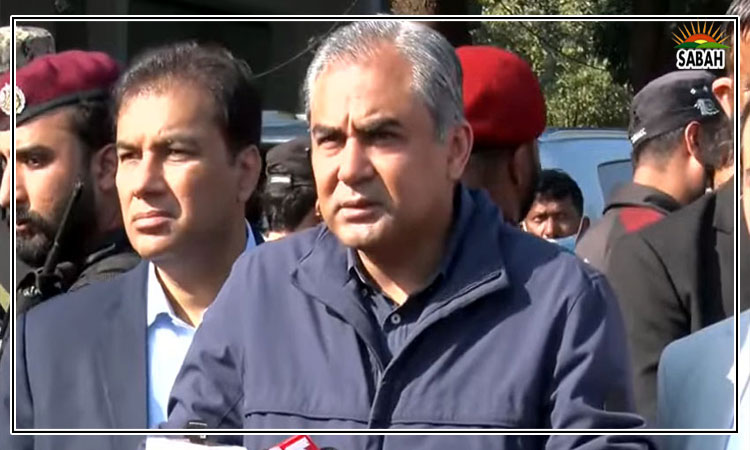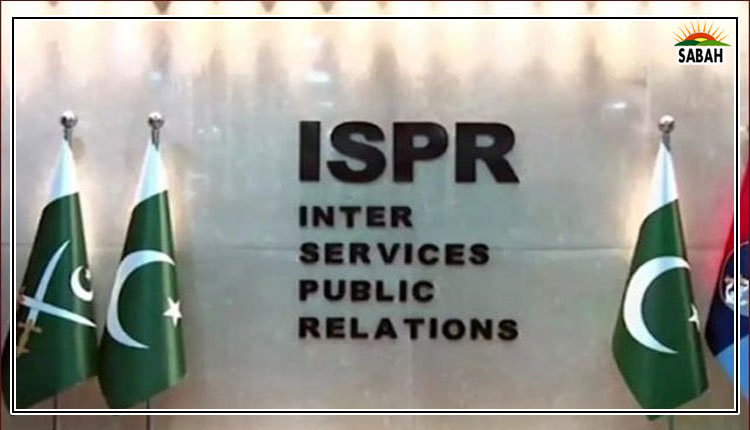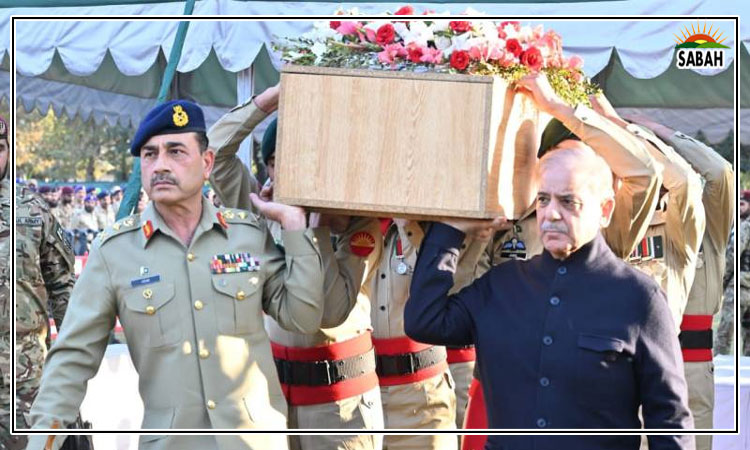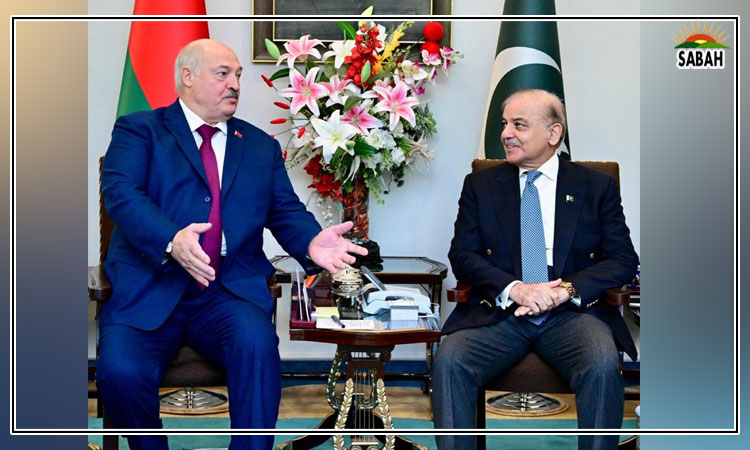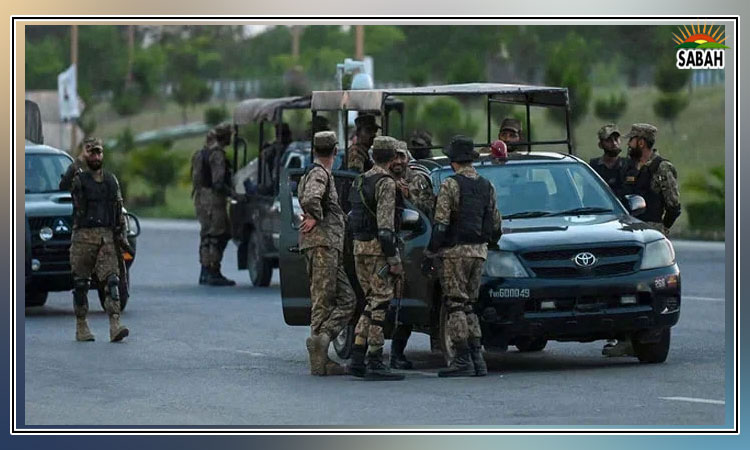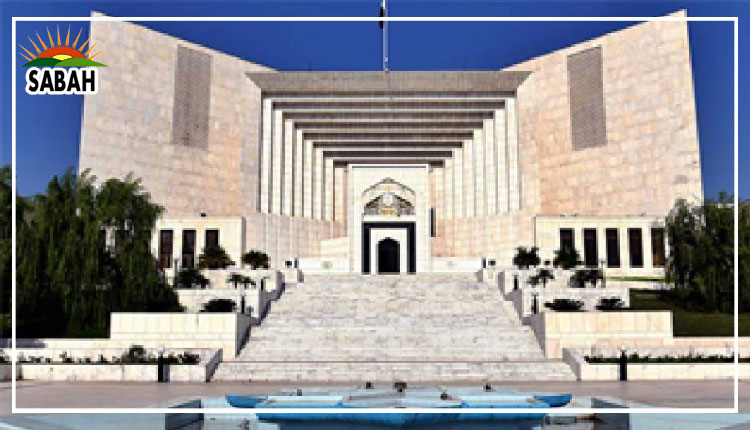Supreme Court gives govt a free hand to control law & order situation
ISLAMABAD, Oct 19 (SABAH): The Supreme Court of Pakistan on Thursday rejected the federal government’s request to issue an interim order against the former prime minister and Chairman Pakistan Tehreek-e-Insaf (PTI) Imran Khan to stop him from creating a law and order situation in the name of ‘jihad’ against the State through a planned long march. However, the court gave the government a free hand to control the law and order situation.
A five-member larger bench of Supreme Court bench headed by Chief Justice of Pakistan (CJP) Justice Umar Ata Bandial and comprising Justice Ijazul Ahsan, Justice Munib Akhtar, Justice Yahya Afridi and Justice Sayyed Mazahar Ali Akbar Naqvi heard the petition filed by interior minister for initiating the contempt of court proceedings against Imran Khan.
The request’s dismissal came during the hearing of a contempt petition filed by the federal government against Imran for allegedly breaking the top court’s May 25 order regarding the party’s ‘Azadi March’. In the same plea, the government sought a restraining order against Imran Khan from creating a law and order situation through a march, at a time when flood-affected people require urgent relief.
During the hearing, Attorney General for Pakistan (AGP) Ashtar Ausaf Ali argued before the court that citizens’ rights had been affected by the PTI’s previous sit-in. The party had submitted an affidavit stating that citizens would not be inconvenienced, he informed the court. “The court order allocated a specific place but the sit-in was brought to D-Chowk, which resulted in material losses. The court should punish those who violated its orders,” he argued. He said, “Imran Khan had issued a call for workers to gather at D-Chowk despite assuring the court he would not do so during proceedings. Srinagar Highway was opened for traffic on the court’s order. The PTI itself asked for Parade Ground but the workers gathered at D-Chowk instead.” He said the workers came towards the Red Zone where there were clashes with law enforcement agencies. Protesters damaged public and private properties.
He also read out the Supreme Court’s May 25 order in the court. “The order prevented us from arresting workers. It directed the Inter-Services Intelligence (ISI), Intelligence Bureau (IB), Inspector General Islamabad and the Interior Ministry to submit reports. “When the reports were submitted, it was found that PTI had violated the assurances [it gave the court],” the AGP said. He informed the court that he had not been provided copies of the reports, at which the bench assured that he would be given the reports.
Ashtar Ausaf Ali informed the court that policemen from Khyber Pakhtunkhwa and Azad Jammu and Kashmir had also entered the capital during the march. The bench then provided the AGP reports from the police and administration regarding that day’s events and asked him to analyse them.
Ashtar Ausaf Ali asked the court to issue an interim order. When the chief justice asked what the attorney general wanted, the latter replied, “Imran Khan is calling the attack on Islamabad a jihad. He is inciting people through his speeches. “According to you, the court order had already been violated. You were the executive authority and following the court order. In the present situation, you have the liberty to take preventative measures,” Chief Justice Bandial observed.
The CJP noted that according to the reports, around 300 people came towards Red Zone in the capital on May 25. But, he observed, it seemed that they were local residents. “Had they been protesters, they would have been more in number.” He noted that 13 people had been injured in the “Azadi March” and public property had been damaged. “Imran Khan went back the next morning. “We will analyse reports in this matter. You should prepare it accordance with the law,” he instructed the attorney general while referring to the PTI’s upcoming march, the date for which has yet to be announced.
“You are telling us [the PTI] has planned a march and sit-in again. You can deal with the situation in accordance with the law,” he iterated. “As of now, there are only speeches. You should take steps wherever there are threats in cities. “You should request [the court] to stop the crowd when people gather. There is no crowd right now,” the Chief Justice observed.
The court rejected the government’s request to issue an interim order for stopping the PTI’s intended long march and directed the AGP to come prepared at the next hearing. Adjourning the hearing till October 26, the CJP gave the government a free hand to control the law and order situation. He also said the government may approach the court if there was any issue before next week. The CJP told the AGP that he would have to present strong arguments, adding, “We are not political actors and neither can we take political measures.”


